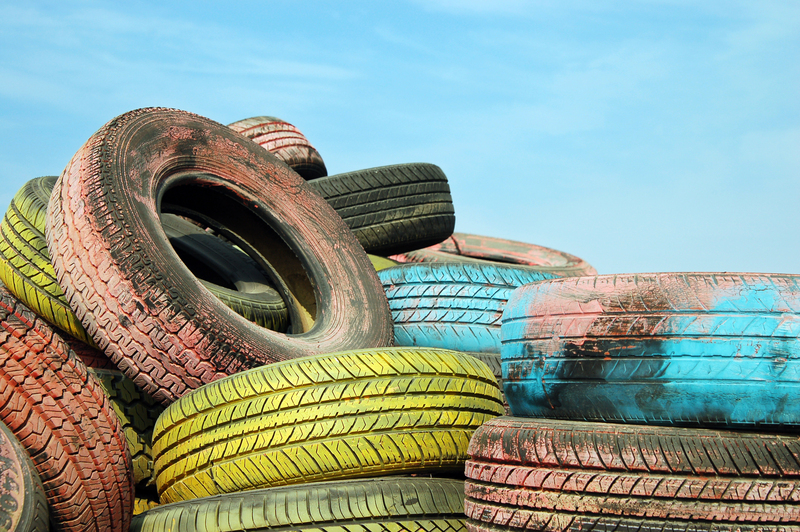Tips on Donating Gently Used Pots and Pans
Have you recently updated your kitchen and found yourself with surplus pots and pans? Donating gently used cookware is a meaningful way to declutter your home and help those in need. In this comprehensive article, we'll explore the best tips on donating gently used pots and pans, covering preparation, donation options, and best practices. Ready to give your cookware a second life? Read on!
Why Donate Gently Used Pots and Pans?
Donating you gently used cookware is about much more than freeing up space. Here's why passing on your pots and pans is a good idea:
- Supports Families in Need: Many charities provide home essentials to families getting back on their feet.
- Reduces Environmental Impact: Extending the life of your cookware diverts waste from landfills.
- Saves Money for Charities: Donated kitchenware saves organizations money that can be directed elsewhere.
- Promotes Sustainable Living: Encouraging the reuse of durable goods helps the planet.
- Can Be Tax Deductible: In many regions, your donation can be written off as a charitable deduction.

Preparing Your Pots and Pans for Donation
Before donating your used pots and pans, it's important to ensure they are in good condition. Here is a step-by-step guide to prepare your kitchenware for its next home:
1. Clean Thoroughly
- Wash pots and pans with warm, soapy water.
- Remove any burnt residue or stains. Use baking soda or vinegar for tougher grime.
- Make sure all items are completely dry to prevent mold and mildew during storage or transport.
2. Inspect for Damage
- Check non-stick surfaces for major scratches or flaking. Only donate if still functional.
- Ensure lids and handles are secure and not broken.
- Dispose of any items with rusty, warped, or loose parts responsibly instead of donating.
3. Match Lids and Accessories
- Try to pair pots and pans with their original lids.
- If you have extra lids or handles, include them--they might fit someone else's missing piece!
4. Sort and Package Safely
- Group similar-sized items together for easier packaging.
- Use boxes or reusable bags to avoid breakage during transport, especially for glass lids.
Donation tip: Only donate cookware you'd be comfortable using yourself. Remember, gently used means clean, safe, and functional.
Where to Donate Pots and Pans
There are numerous places that welcome kitchenware donations. Here are some popular options:
1. Charitable Thrift Stores
- Places like Goodwill, Salvation Army, and local hospices often accept gently used kitchen items.
- Tip: Confirm with your local branch if they accept used cookware before heading over.
2. Homeless Shelters and Transitional Housing Programs
- These organizations equip kitchens for families in transition who often need basic cooking tools.
- Call ahead to request specific needs--sometimes they only accept items in sets.
3. Community Centers or Churches
- Many run charity kitchens or outreach programs that distribute household items directly to those in need.
4. Food Banks and Soup Kitchens
- Some food banks use cookware donations for on-site meal preparation or for culinary training programs.
5. Domestic Violence or Family Shelters
- Survivors often leave home suddenly and require essentials to start over. Kitchenware like pots and pans are always valued.
6. Refugee and Immigrant Support Agencies
- These groups assist newcomers in setting up their households, and kitchen essentials are in high demand.
7. Online Community Groups
- Post items on Freecycle, Buy Nothing Groups, Facebook Marketplace (for free), or Nextdoor to connect with local families directly.
- List specific details and photos to help match your gently used cookware to those who need it.
Best Practices for Donating Cookware
Check Donation Guidelines
- Many charities have lists of acceptable items on their websites.
- Some organizations do not accept certain materials (like Teflon or aluminum) due to health or recycling policies.
Donate Responsibly
- Don't donate broken or unsafe items. Damaged non-stick coatings, loose handles, or missing parts can be dangerous.
- If in doubt, recycle responsibly instead of passing on hazardous items.
Research Local Recycling Options
- If your pots or pans are beyond repair, research local metal recycling or scrap yards to dispose of them in an eco-friendly manner.
- Some cities have special drop-off days for household goods recycling.
Consider Shipping & Timing
- Some organizations (like charities supporting rural communities) offer free shipping labels to send needed items.
- Time your donation seasonally--move-in season for students or refugees often means greater need for kitchenware.
Frequently Asked Questions about Donating Pots and Pans
Can I donate pots and pans with minor scratches?
Yes, as long as the items are safe and functional. Avoid donating cookware with deep gouges, flaking non-stick coating, or cracks that could pose a risk to the next user.
Are there items thrift stores will not accept?
Yes. Some thrift stores don't accept:
- Glass cookware (prone to breakage during transport)
- Large or bulky items, like oversized stock pots
- Pots and pans with extensive rust, residue, or missing parts
- Non-stick pans with significant wear or loss of coating
Call ahead or check the store's website for specific guidelines before donating.
How can I verify my donation is needed?
Reach out to the organization directly. Many will publish a wish list or post updates about items in need. When making an online post, list detailed information about sizes and materials to help connect your pre-loved kitchenware with someone who'll appreciate it.
Will I get a tax deduction for donating cookware?
In many countries, including the U.S., donations to qualified 501(c)(3) charities are tax-deductible. Ask for a receipt when you drop off your items. Check government tax guidelines for details on valuation.
Eco-Friendly Alternatives for Unusable Pots and Pans
Not all used cookware can be donated, but that doesn't mean it should go straight to landfill. Here are some sustainable alternatives:
- Recycle Scrap Metal: Many towns offer recycling programs for aluminum and stainless steel cookware.
- Upcycle for Crafts: Repurpose an old pan as a planter, bird feeder, or art project.
- Contact Manufacturers: Some brands have take-back programs for their products.

How to Maximize the Impact of Your Donation
- Include a Kind Note: A handwritten message can brighten someone's day and let them know the cookware is passed on with care.
- Bundle with Other Essentials: Pair pots and pans with utensils, oven mitts, or small appliances if possible.
- Promote Community Drives: Organize a cookware collection drive within your neighborhood, school, or office to multiply your impact and help many families.
Conclusion: Give Your Gently Used Pots and Pans a Second Life
Donating your gently used pots and pans can make a world of difference to families, shelters, and community organizations. By taking the time to clean, inspect, and package your cookware properly, and choosing the right recipient, you're contributing to a cycle of generosity and sustainability. Remember, every pot or pan passed on is one less item in a landfill and one more step toward building stronger, more resourceful communities.
Follow these tips for donating used cookware to ensure your contribution is both helpful and valued. The next time you upgrade your kitchen, think about who could benefit from your pre-loved pots and pans--they're just beginning their next journey!
